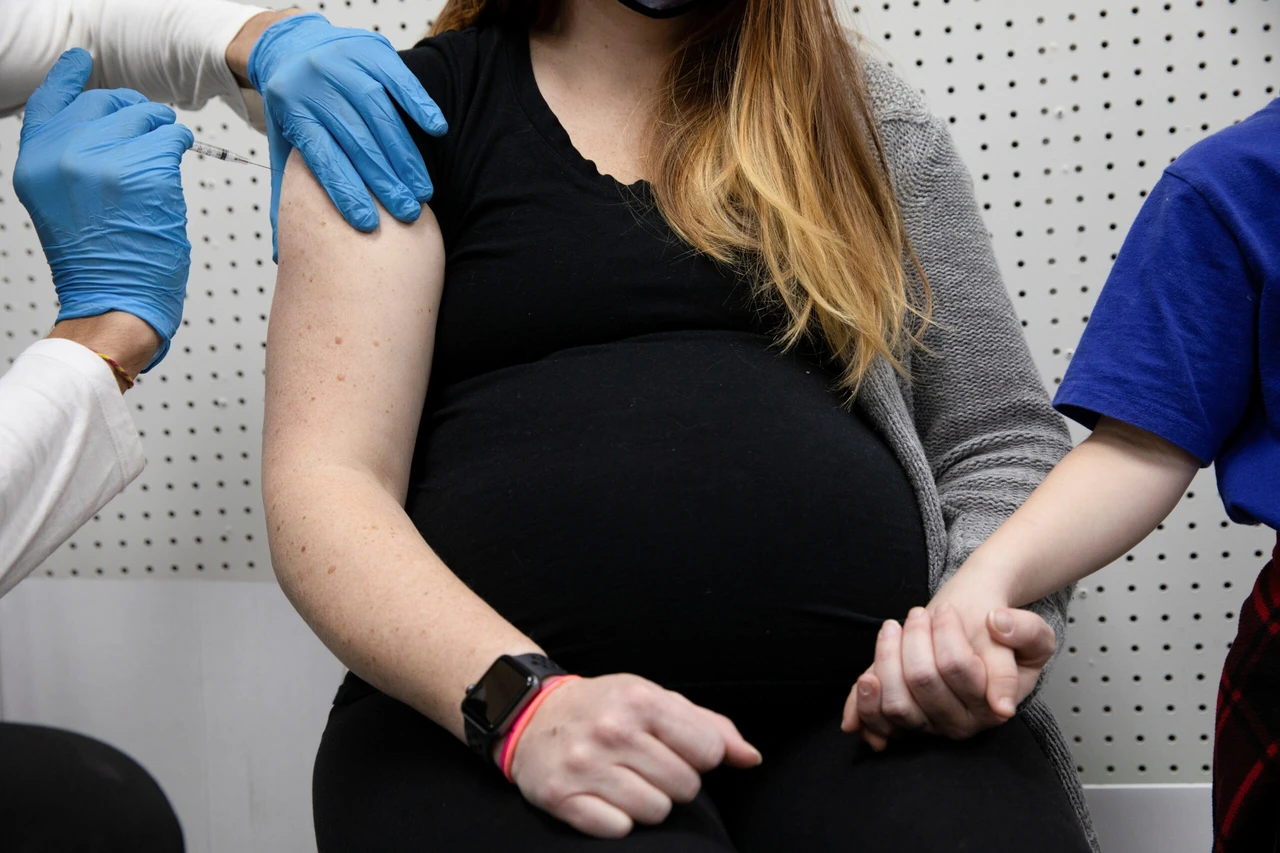Study provides new insight into brain changes during pregnancy
 A pregnant woman receives a vaccine for the coronavirus disease (COVID-19) at Skippack Pharmacy in Schwenksville, Pennsylvania, U.S., February 11, 2021. (Reuters Photo)
A pregnant woman receives a vaccine for the coronavirus disease (COVID-19) at Skippack Pharmacy in Schwenksville, Pennsylvania, U.S., February 11, 2021. (Reuters Photo)
A comprehensive new study has revealed how pregnancy alters the brain, shedding light on an understudied field. Published Monday in Nature Neuroscience, the research shows that certain brain regions may shrink during pregnancy, while connectivity improves, marking significant changes in the transition to motherhood.
The study followed a healthy 38-year-old woman, Dr. Elizabeth R. Chrastil, who underwent in vitro fertilization (IVF). From three weeks before conception to two years after childbirth, researchers tracked changes in her brain through 26 MRI scans and blood tests. Dr. Chrastil, a professor at the University of California, Irvine, initiated the project and used herself as the subject.
“There has been so much about the neurobiology of pregnancy that we don’t understand yet,” said Dr. Emily Jacobs, senior author and associate professor at the University of California, Santa Barbara, during a news briefing. She attributed this knowledge gap to historical neglect of women’s health in biomedical research.
The study, which compared Dr. Chrastil’s brain changes to those of eight non-pregnant participants, found significant decreases in gray matter volume and cortical thickness by the ninth week of pregnancy. This reduction, particularly in regions like the default mode network, which is involved in social cognition, was linked to rising levels of estradiol and progesterone.
In addition to gray matter reduction, the research documented increased cerebrospinal fluid and white matter microstructure in later stages of pregnancy. While some changes, such as cortical thinning, persisted two years after birth, others, including white matter improvements, reverted to pre-pregnancy levels soon after childbirth.
“These changes are fundamental in understanding how pregnancy affects brain function,” said Dr. Jodi Pawluski, a neuroscientist and therapist not involved in the study. She noted the potential implications for perinatal mental health, suggesting that the findings could help develop support mechanisms for a healthy transition to motherhood.
Although the study involved only one participant, the results align with previous research that found similar patterns across different women. “In one study, we found that all participants could be classified as having been pregnant or not based solely on their brain changes,” said Dr. Elseline Hoekzema, a researcher at Amsterdam University Medical Center who was not involved in the study.
The research highlights the need for more comprehensive data on women’s health. “Of the 50,000 brain imaging articles published in the last 30 years, less than half of one percent focus on health factors unique to women, like pregnancy,” Jacobs said.
The study marks the launch of the Maternal Brain Project, an international initiative aimed at expanding understanding of brain changes during pregnancy. This research could also inform efforts to predict and address conditions like postpartum depression and preeclampsia’s long-term neurological effects.
While the study opens new avenues for research, Jacobs emphasized that much remains unknown. “We’re just starting to scratch the surface of understanding,” Dr. Chrastil added.



